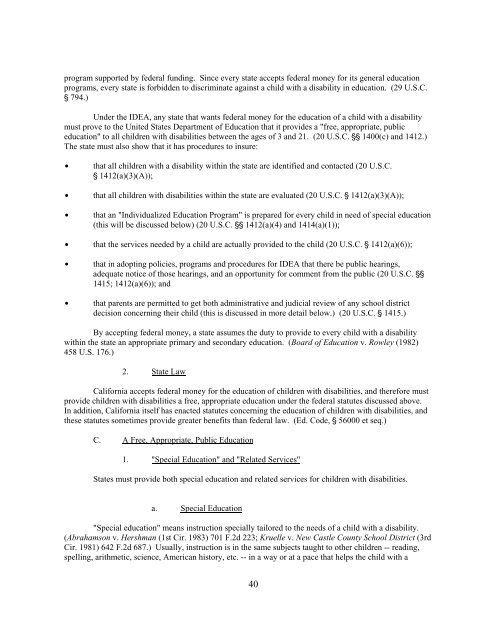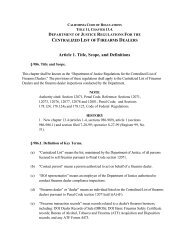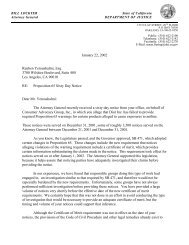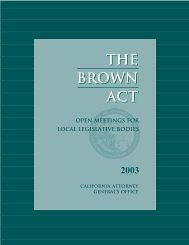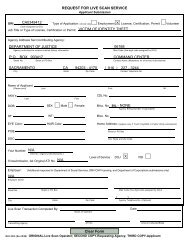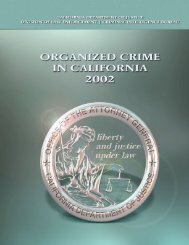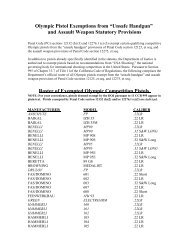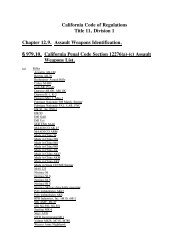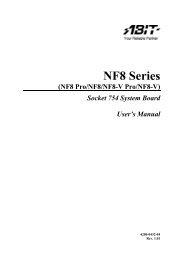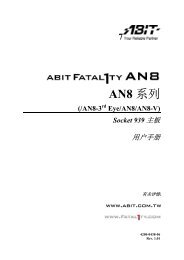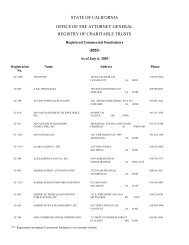Legal Rights of Persons With Disabilities - Ossh.com
Legal Rights of Persons With Disabilities - Ossh.com
Legal Rights of Persons With Disabilities - Ossh.com
Create successful ePaper yourself
Turn your PDF publications into a flip-book with our unique Google optimized e-Paper software.
program supported by federal funding. Since every state accepts federal money for its general education<br />
programs, every state is forbidden to discriminate against a child with a disability in education. (29 U.S.C.<br />
' 794.)<br />
Under the IDEA, any state that wants federal money for the education <strong>of</strong> a child with a disability<br />
must prove to the United States Department <strong>of</strong> Education that it provides a "free, appropriate, public<br />
education" to all children with disabilities between the ages <strong>of</strong> 3 and 21. (20 U.S.C. '' 1400(c) and 1412.)<br />
The state must also show that it has procedures to insure:<br />
$ that all children with a disability within the state are identified and contacted (20 U.S.C.<br />
' 1412(a)(3)(A));<br />
$ that all children with disabilities within the state are evaluated (20 U.S.C. ' 1412(a)(3)(A));<br />
$ that an "Individualized Education Program" is prepared for every child in need <strong>of</strong> special education<br />
(this will be discussed below) (20 U.S.C. '' 1412(a)(4) and 1414(a)(1));<br />
$ that the services needed by a child are actually provided to the child (20 U.S.C. ' 1412(a)(6));<br />
$ that in adopting policies, programs and procedures for IDEA that there be public hearings,<br />
adequate notice <strong>of</strong> those hearings, and an opportunity for <strong>com</strong>ment from the public (20 U.S.C. ''<br />
1415; 1412(a)(6)); and<br />
$ that parents are permitted to get both administrative and judicial review <strong>of</strong> any school district<br />
decision concerning their child (this is discussed in more detail below.) (20 U.S.C. ' 1415.)<br />
By accepting federal money, a state assumes the duty to provide to every child with a disability<br />
within the state an appropriate primary and secondary education. (Board <strong>of</strong> Education v. Rowley (1982)<br />
458 U.S. 176.)<br />
2. State Law<br />
California accepts federal money for the education <strong>of</strong> children with disabilities, and therefore must<br />
provide children with disabilities a free, appropriate education under the federal statutes discussed above.<br />
In addition, California itself has enacted statutes concerning the education <strong>of</strong> children with disabilities, and<br />
these statutes sometimes provide greater benefits than federal law. (Ed. Code, ' 56000 et seq.)<br />
C. A Free, Appropriate, Public Education<br />
1. "Special Education" and "Related Services"<br />
States must provide both special education and related services for children with disabilities.<br />
a. Special Education<br />
"Special education" means instruction specially tailored to the needs <strong>of</strong> a child with a disability.<br />
(Abrahamson v. Hershman (1st Cir. 1983) 701 F.2d 223; Kruelle v. New Castle County School District (3rd<br />
Cir. 1981) 642 F.2d 687.) Usually, instruction is in the same subjects taught to other children -- reading,<br />
spelling, arithmetic, science, American history, etc. -- in a way or at a pace that helps the child with a<br />
40


